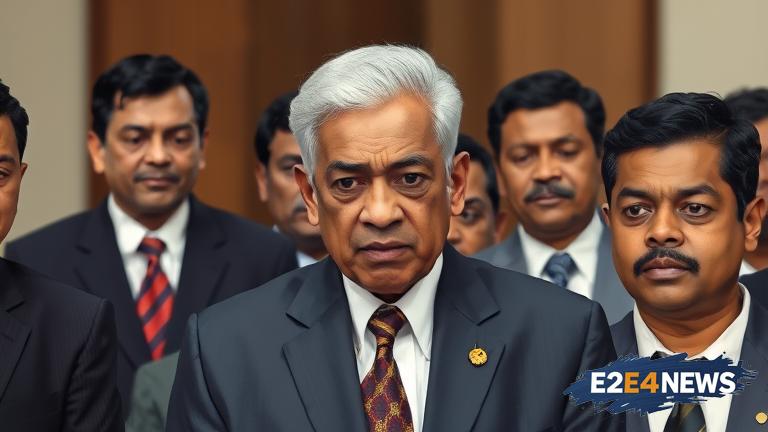A Sri Lankan court has granted bail to former President Ranil Wickremesinghe in a corruption case related to the alleged misuse of public funds. The case, which was filed by the Attorney General’s Department, alleged that Wickremesinghe had misused public funds during his tenure as Prime Minister from 2015 to 2019. The court granted bail to Wickremesinghe after considering the arguments presented by his lawyers. Wickremesinghe’s lawyers argued that their client was innocent and that the charges against him were politically motivated. The court also imposed certain conditions on Wickremesinghe’s bail, including a requirement that he not leave the country without the court’s permission. The corruption case against Wickremesinghe is one of several that have been filed against former government officials in Sri Lanka in recent years. The cases are part of a broader effort by the current government to root out corruption and ensure accountability for past abuses of power. Wickremesinghe’s case is significant not only because of his high profile but also because of the potential implications for the country’s ongoing efforts to address corruption. The case has also sparked debate about the role of the judiciary in ensuring accountability for corruption and the need for greater transparency and accountability in government. The Sri Lankan government has faced criticism in the past for its handling of corruption cases, with some arguing that the government has not done enough to address the issue. The current government has pledged to take a tougher stance on corruption and to ensure that those responsible are held accountable. The case against Wickremesinghe is a test of the government’s commitment to addressing corruption and ensuring accountability. The outcome of the case will be closely watched, both in Sri Lanka and internationally, as it has the potential to set an important precedent for the country’s efforts to address corruption. The case is also significant because of the potential implications for the country’s political stability. Sri Lanka has experienced significant political upheaval in recent years, including a constitutional crisis in 2018 that led to the appointment of a new Prime Minister. The country is still recovering from the effects of the crisis, and the outcome of the case against Wickremesinghe could have significant implications for the country’s ongoing efforts to stabilize its politics. The case has also sparked debate about the role of the international community in supporting Sri Lanka’s efforts to address corruption. The international community has provided significant support to Sri Lanka’s efforts to address corruption, including through the provision of technical assistance and funding. However, some have argued that more needs to be done to support the country’s efforts to address corruption and ensure accountability. The case against Wickremesinghe is a reminder of the ongoing challenges that Sri Lanka faces in its efforts to address corruption and ensure accountability. The country still has a long way to go in terms of ensuring that those responsible for corruption are held accountable, and the outcome of the case against Wickremesinghe will be an important test of the government’s commitment to addressing the issue. The case is also significant because of the potential implications for the country’s economy. Corruption is a significant obstacle to economic development, and the case against Wickremesinghe is a reminder of the need for greater transparency and accountability in government. The outcome of the case will be closely watched by investors and others who are interested in Sri Lanka’s economic prospects. The case has also sparked debate about the role of the media in ensuring accountability for corruption. The media has played an important role in highlighting corruption in Sri Lanka, and the case against Wickremesinghe is a reminder of the need for a free and independent media to ensure that those responsible for corruption are held accountable. The case is also significant because of the potential implications for the country’s international reputation. Sri Lanka has faced criticism in the past for its handling of corruption, and the outcome of the case against Wickremesinghe will be closely watched by the international community. The case is a test of the government’s commitment to addressing corruption and ensuring accountability, and the outcome will have significant implications for the country’s international reputation.
